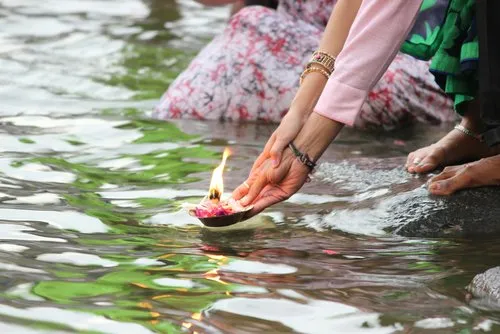In our relationships, be they in the workplace, with our neighbours, or the more complex ones of our own families, we often feel obliged to agree to the many, and sometimes demanding, requests that come our way. However, it is not always healthy to say ‘yes’ to everything, especially when deep inside, what we really want to say is ‘no’.
Most of us enjoy cooperating and helping out when we can, and saying ‘yes’ can bring us many rewards and opportunities for growth. ‘Yes’ people are great people to have around in whatever environment. Because we know they do say ‘yes’, then whenever they have to say ‘no’, we really understand that it is just not possible for them, and easily respect their decision. ‘No’ people, on the other hand, make us feel hesitant about asking them in the first place, and there is always the feeling that they probably could, but simply do not want to help out. The world needs ‘yes’ people – those who are willing to put aside their own requirements of the moment, to really help with an important task. However, when our inner voice says ‘no’ and we battle with discomfort and conflict inside, but still say ‘yes’, then this becomes the foundation for unhealthy relationships.
We need the capacity to say ‘no’ when it is necessary. We can ask ourselves two questions to find out why it is that we say, ‘yes’ when we really mean ‘no’.
1.Why is it so difficult for me to say ‘no’?
2.How can I build inner strength so that I can say ‘no’?
The answers to question one will vary for each of us, but one thing is the same, and that is that our conditioning has led us to hold a deep belief that we should always say ‘yes’. It may be that we fear being seen in a lesser light, or we misjudge the ability of the other to manage if we say ‘no’, or we have the habit of letting others emotionally manipulate us, and so on.
The answer to question two is that we need to establish a new set of beliefs, a new awareness, that permits us to say ‘no’ at the right time, for the right reasons. This requires us to change our old programming, and talk to the self with a new perception, until that new awareness makes it easy to say ‘no’ when we need to. We can also rehearse saying ‘no’ by visualising a new way of dealing with an upcoming situation. We can emulate others too, who do this very well. One of the most powerful ways is to use meditation, because all of the qualities, the strength and wisdom we need to express our real feelings in a clear and peaceful way, are within us.
There are many ways of saying ‘no’, and they do not always have to be absolute. We can use the spectrum from ‘yes’ to ‘no’ to express our feelings honestly. We can use a ‘perhaps’, but under certain conditions, or by saying that we do not feel comfortable or certain that it is the right way to do things, but that we will go along with the majority for a short time and see how it goes. When people get used to us expressing our feelings honestly, then when we do need to say ‘no’ there will be greater respect for our decision.
So how do we actually say ‘no’? There is a formula for saying ‘no’; the INRA Principle.
I = Interest – show interest in the situation and the request
N = No – say ‘no’ respectfully but clearly, leaving no room for doubt
R = Reason – tell them why you cannot. The pressure of deadlines, or it goes against your beliefs
A = Alternative – suggest and talk through alternative options
If we constantly suppress our real feelings, and keep living with the confusion and inner conflict and discomfort, then when we are forced to say ‘no’, it will be said with all that pent up emotion and aggression. That makes for unhealthy relationships.
Setting these boundaries is helpful in so many ways, not just in the ‘yeses’ and ‘noes’ of life. When we meditate, we learn a great deal about ourselves, in a safe and silent space. We learn how resilient we are and that we have everything we need to form harmonious, happy, and healthy relationships.
Mathias Steffan is a headmaster, a stress and resilience coach, and a Brahma Kumaris Rajyoga teacher based in Zurich, Switzerland.










